
INDIA GATE
The one who left behind his tale of glory,
Your engraved name still tells your story.

AKSHARDHAM
Collect moments not things.
Best Places To Visit In Delhi
Delhi is both a union territory within India, as well as a city, and
features two very
different worlds: New Delhi and Old Delhi. The former, inaugurated by the British in 1931 to serve as the imperial
capital, is the nation's modern capital and seat of government, while Old Delhi is considered by many as the
symbolic heart of the greater metropolitan area.
One of the most populous regions in the world, Delhi is a heady
mix of tradition and modernity, important as both a religious center and India's busiest international gateway. Its
history is as old as the ancient Yamuna River, one of the most sacred rivers in Hinduism and a natural dividing line
between New Delhi to the west and Old Delhi to the east.
Things to see and do in Delhi and New Delhi are
plentiful and include experiencing its diverse arts and crafts industry; its many magnificent monuments; countless
performing arts venues; and its excellent cuisine, including delicacies from every corner of India. Delhi is also a
shopper's paradise with numerous bazaars and markets, including Chandni Chowk, the country's most famous commercial
area.
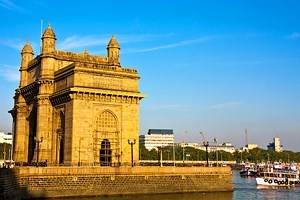
Some quick example text to build on the card title and make up the bulk of the card's content.
Go To Mumbai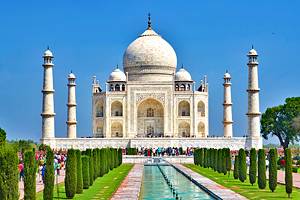
Some quick example text to build on the card title and make up the bulk of the card's content.
Go To Agra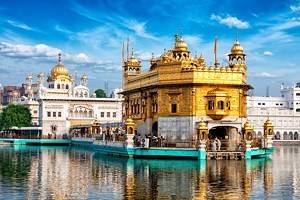
Some quick example text to build on the card title and make up the bulk of the card's content.
Go To Amritsar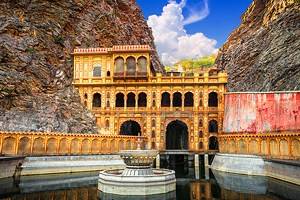
Some quick example text to build on the card title and make up the bulk of the card's content.
Go To Jaipur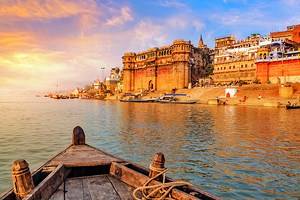
Some quick example text to build on the card title and make up the bulk of the card's content.
Go To Varanasi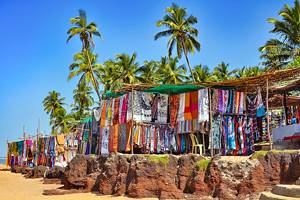
Some quick example text to build on the card title and make up the bulk of the card's content.
Go To Goa
Some quick example text to build on the card title and make up the bulk of the card's content.
Go To MeghalayaSome quick example text to build on the card title and make up the bulk of the card's content.
Go To RishikeshSome quick example text to build on the card title and make up the bulk of the card's content.
Asam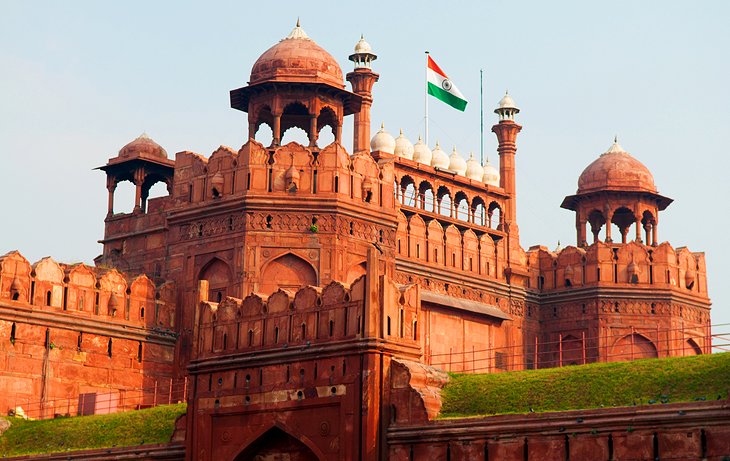
The beautiful Red Fort was built by Shah Jahan in 1648 and served as the seat of Mughal power until 1857. This
stunning structure, with its tall, red sandstone walls covers an area of more than two square kilometers, the
entirety of which is crescent shaped and surrounded by a moat. The impressive main entrance, the Lahore Gate, is
so named as it faces towards Lahore in Pakistan, while the even grander Delhi Gate was used by the emperor for
ceremonial processions.
Entering through the Lahore Gate, visitors reach Chhatta Chowk, a 17th-century
covered bazaar where items such as silks, jewelry, gems, and silverware can be purchased, along with souvenirs
and food items. The Naubat Khana within the Red Fort once housed the musicians who played for the emperor, and
its fine galleries still contain many interesting musical instruments such as kettledrums, gongs, and cymbals.
Diwan-i-Am, the Hall of Public Audiences, where the emperor would receive his subjects, is also worth seeing for
its stunning white marble.
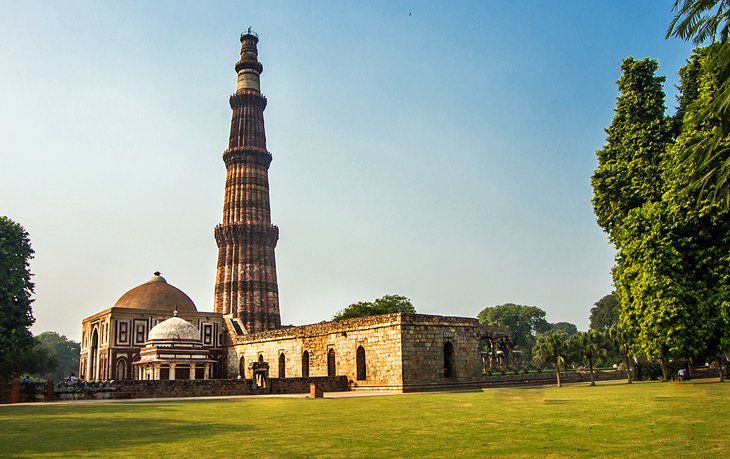
Completed in the 12th century, the beautiful Qutub Minar-India's tallest minaret and now a UNESCO Word Heritage
Site-attracts many international visitors eager to climb to the top for its breathtaking views of the
surrounding area.
This ornate five-story tower rises more than 70 meters and is covered with intricate
carvings featuring the history of Qutub along with inscriptions from the Koran. It's also notable for being
constructed of a number of different types of stone (the first three stories are made of red sandstone, while
the fourth and fifth stories were built with marble and sandstone).
A variety of other important tombs can be
seen in Lodi Gardens, a New Delhi city park that covers some 90 acres of land. This former Lodi site (the Lodi's
ruled parts of northern India prior to the 1600s) is a particularly popular spot for residents to stroll, making
it an exceptional destination for tourists.
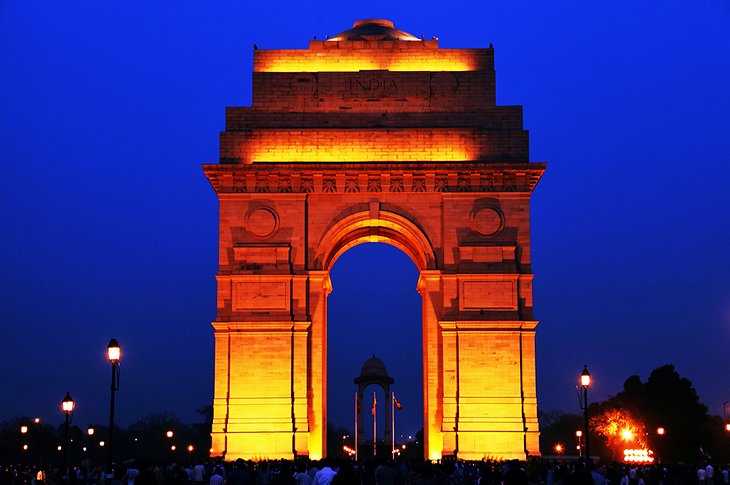
Looking a little like the famous Arc de Triomphe in Paris, the equally impressive India Gate is a magnificent
stone arch built as a memorial to Indian soldiers killed in WWI. An eternal flame burns beneath the massive
structure, and its walls are inscribed with the names of more than 90,000 soldiers who died in the
conflict.
Standing on a base of red stone and featuring a shallow domed bowl on top that is occasionally
filled with burning oil (usually only on important anniversaries), the structure dominates the parkland around
it, an always busy area with crowds of tourists and locals alike enjoying a picnic or simply relaxing. For a
real treat, try to see the India Gate at night, considered one of the top free things to do in New Delhi; it's a
spectacular sight when it and nearby fountains are floodlit.
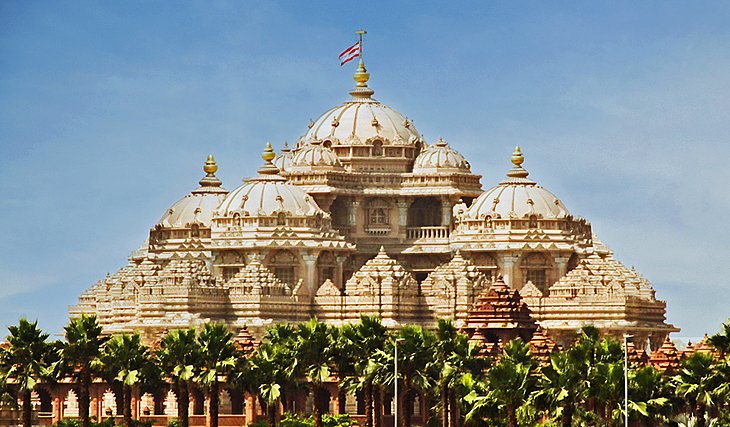
Although only recently completed (it opened in 2007), the splendid Hindu Akshardham temple looks like it could
be centuries old. Festooned with intricate and elaborate carvings, this magnificent building attracts countless
visitors for its majestic beauty.
Highlights include the stunning 43-meter-high main monument with its rich carvings of animals, plants, gods,
dancers, and musicians, all made from pink sandstone and marble. Of particular note are the 234 ornate pillars
supporting its nine domes, as well as a stunning stone tribute to elephants, the centerpiece of which is a
massive 3,000-ton statue of one of these beasts.
Other features of interest include a theater showing a movie tracing the building's construction, a fun
15-minute boat ride depicting India's rich history and diverse culture, and the spectacular Yagnapurush Kund, a
large musical fountain that is a particular treat when lit up at night.
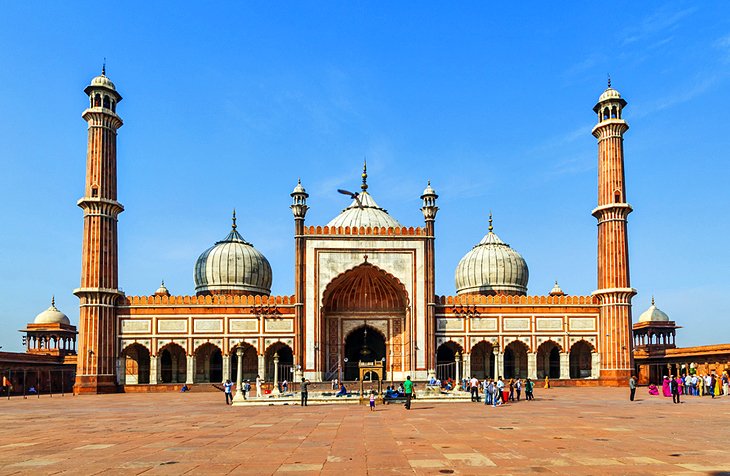
The Jama Masjid is one of India's largest mosques and was the final architectural feat of Shah Jahan. Completed
in 1658, this beautiful structure features three gateways, four angled towers, and two 40-meter-high minarets
built using red sandstone and white marble and attractively alternated in vertical stripes. Visitors can climb
to the top of the southern minaret for spectacular views of Old Delhi, and afterwards visit the large central
pool used for washing before prayers (visitors must take off their shoes and be appropriately dressed before
entering; non-Muslims aren't permitted during prayers).
Afterwards, be sure to visit Chandni Chowk, Old Delhi's massive main thoroughfare and a market area dedicated to
shopping and eating. Of particular interest are Naya Bazaar and Gadodial, famous spice markets where you'll see
hundreds of items displayed including aniseed, ginger, pomegranate, saffron, lotus seeds, pickles, and
chutneys.